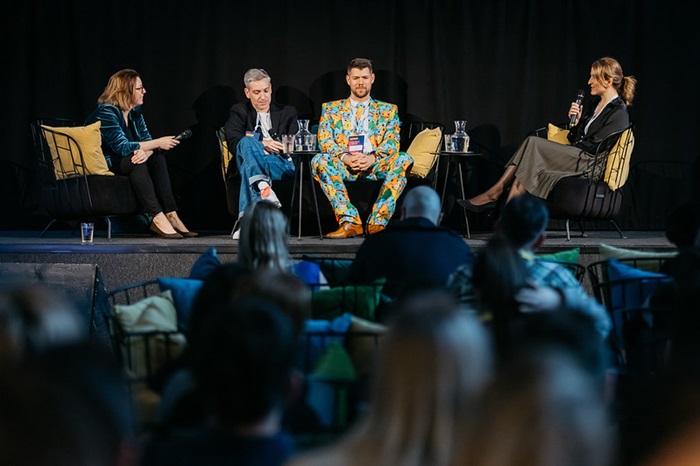Campaigns in traditional media bring e-shops an increase in brand awareness, as well as a contribution to overall turnover. This came out of the discussion at the Eshopista meeting.
For online retailers such as Alza.cz, Niceboy or Trenýrkárna, campaigns on TV or radio bring the effect of increased customer interest in their products. This came out of a discussion at the Eshopista conference organised by Acomware last week.
Eva Šípková, Head of Customer Experience at Alza.cz, described to the audience the impact of the "You order by midnight, you have Alzabox in the morning" campaign. Although the retailer had this form of delivery on offer before the TV campaign was launched, it was only after its launch that it registered changes in customer behaviour. "The moment the campaign was launched, customers became extremely demanding and demanded express delivery. I don't want to say we were caught off guard, but how quickly they took the offer on board and started using it surprised us in the sense of how successful we were and that we were a victim of our own success," she shared.
For Niceboy, the headphone and speaker brand, radio advertising again became crucial, following a change in visual identity. "Radio advertising was key. We kept it long term with a simple idea. For us, radio advertising is marginal, but our internal measurement also showed that people most often associated our brand with this advertising," recapitulated founder and co-owner Jiří Zima.
And the effectiveness of TV communication is also appreciated by Ruslan Skopal, CEO of Trenýrkárna.cz, who also participated in the debate. "TV is a great channel for brand building. But it has also helped us and is increasingly helping us to grow our turnover," he wrote on his LinkedIn a year ago.
The discussion also turned to discounting policies and distribution channels alongside campaigns. According to Ruslan Skopal, it is crucial for the company to maintain a set margin. Although Trenýrkárna often works with discounts, it manages to keep its margins, according to Skopal. "In the last three months we have the highest, we have learned to work with it," he mentioned, adding that Trenýrkárna tries to use its strengths - besides good prices, these include speed of delivery and quality of the product. But it costs us a lot of effort," he said.
Alza.cz, which has a wide portfolio of products from different segments and targets customers of all generations, does not create specific touchpoints for specific customer groups. "For us, the biggest challenge is to find touchpoints for everyone and tailor everything to everyone because we have a broad customer base. We can't adapt to just one generation. That's why we have 60 brick-and-mortar stores, because we know that the customer is there and sees it as a headquarters in their region," described Eva Štípková. Alza.cz therefore still intends to develop its brick-and-mortar stores. They may differ - some serve more as a point of sale and advice, others are more akin to "self-service". "The largest store, the one in Prague's Holešovice, makes very interesting sales on the spot. Then the stores are just like outlets, but they still have added value. Customers know they can come in and get advice. They are an important point of contact for a lot of people. Also because there are people who don't trust the box and don't like to use them," she explained.
Niceboy relies on selling through different channels. It generates only about a tenth of its total sales through its own e-shop. "It's not a big e-shop and we have lower tens of millions of crowns through it. But if we only sold through it, we wouldn't be able to get our brand to so many people. Diversifying sales channels is ideal for us," Jiří Zima explained the strategy. He believes that a retailer is depriving itself of the range that would allow it to grow more by closing itself to one channel, even its own. "The bottom line is the final PNL and that works better for us with the involvement of other counters," he added.
The majority of sales in Czech e-commerce, according to Ruslan Skopal, take place in discounts. "The market is perverse, without discounts, lower tens of percent of business is done...if at all. We have a set margin line that we can't go below because we have some costs. What's above that, we play with. We know we can sell the product the cheapest and still make a profit on it. The psychology with the customer is that he wants a discount. We have three types of discounts and we know that the conversion rate jumps 30% when we give a third discount," Skopal described the situation. He also recently pointed out on his LinkedIn profile the "incredibly cheap prices" of Chinese e-shop Temu.
Source: mediaguru.cz

Loading more ...
